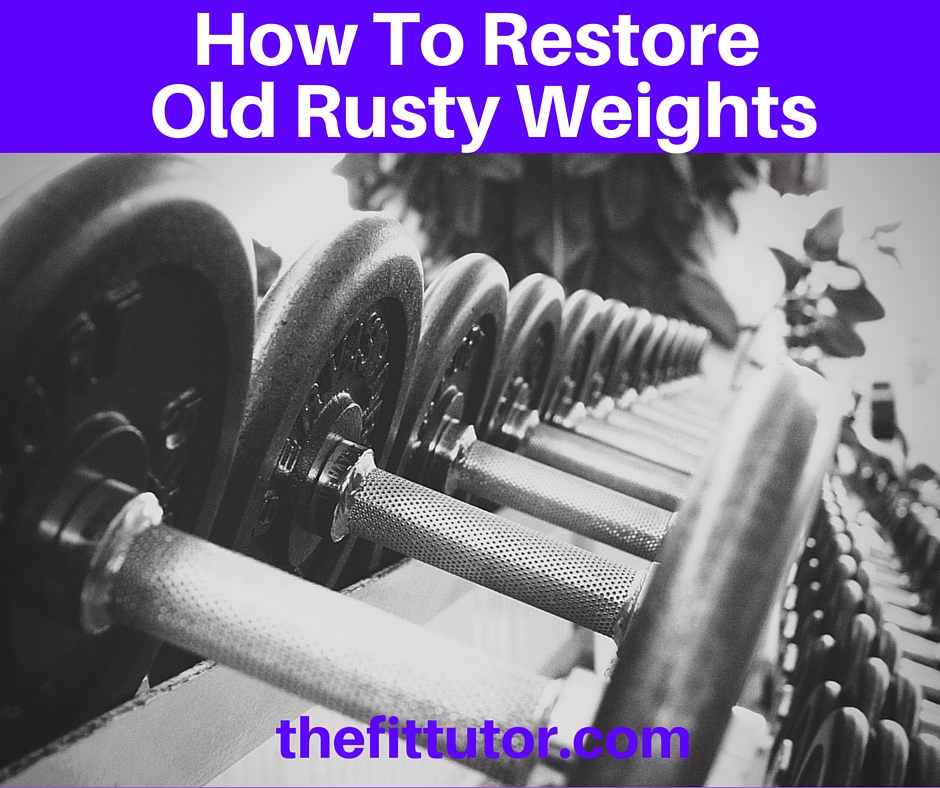
Dumbbells are my favorite and most recommend tool to help you get stronger, in shape, and lose weight! I strongly advise all women to lift weights, but if you can’t afford (or don’t want to afford) a pricey pair of dumbbells, here is a step-by-step tutorial on how to remove rust from dumbbells.
Rusty dumbbells are cheap and easy to find!
Everyone has a friend or family member that caught the New Years bug, filled up their home gym, and then fell off the workout bandwagon. They now have rusty, chipped dumbbells somewhere in the basement or shed. Find this person, and then ask if you can have or buy these weights for a cheap price.
You can also find these at yard sales and second hand stores for a very discounted price. I refuse to pay more than just slightly over $1 per 1 pound of weight when buying *new* dumbbells or kettlebells– so keep this in mind as you hunt for deals. They are hard to find new for that price, but you can with some keen detective skills. Restoration is usually the cheaper way.
I cannot sew, bake, or craft, but consider this my addition to the DIY section on Pinterest ;)
Equipment needed:
- Old rusty dumbbells
- Wire brush (or sandpaper if the weights aren’t in too bad of shape) (This is a good one for ~$7)
- 1 gallon of white vinegar or coke (I had better results with vinegar) (Around $3 at the store, or order it today here for ~$10)
- if you are restoring a lot of weights, then you may need more liquid
- tub or bucket, large enough to hold your dumbbells
- Rust-Oleum (around $6 – get it now)*
If you already have a bucket and get the weights for free, your total could easily be under $10. Let’s do this!
*I’ve linked to my amazon store. If you use these I will make a tiny amount at no extra cost to you!
Step 1: Brush your rusty dumbbells
Use your wire brush to remove any visible rust. Don’t worry about getting all of it, the soaking should take care of the rest. If your dumbbells are really rusty, you could try a Dremel tool with a wire brush if scrubbing alone doesn’t work.
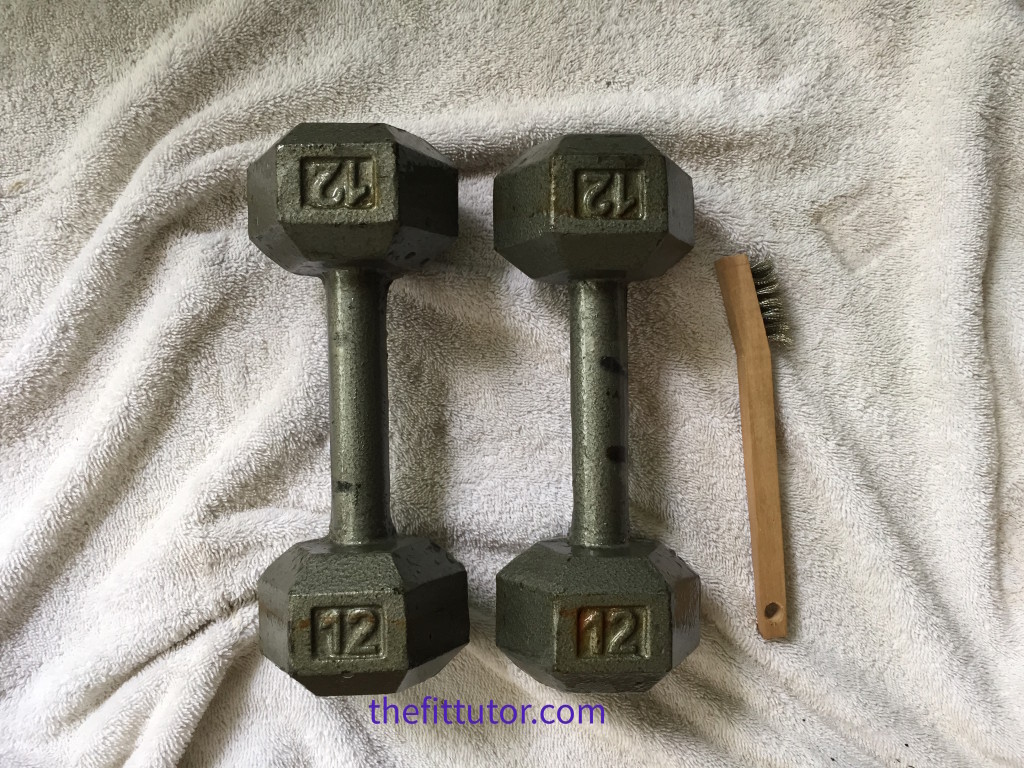
Step 2: Soak your rusty dumbbells
Soak your dumbbells for 24-72 hours (be patient, the longer the better) in 50% vinegar, 50% water solution. Another source said to use Coke, but I had better results with the vinegar solution.
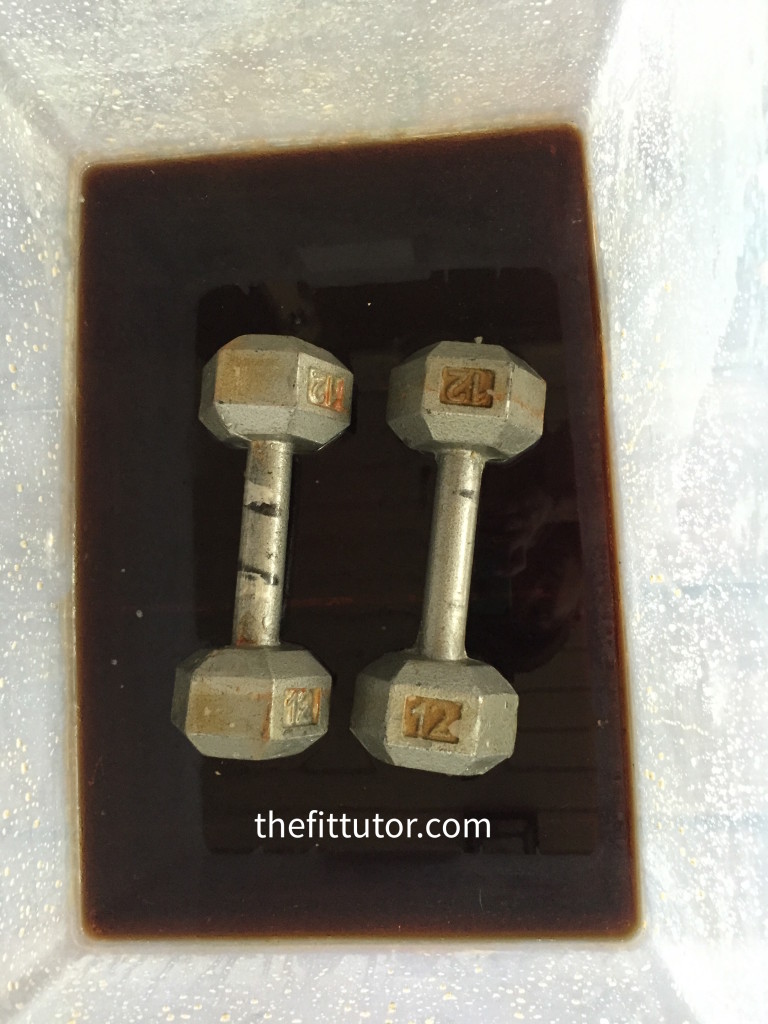
Step 3: Scrub the rust off your dumbbells
Scrub any remaining rust off with your wire brush.
Rinse. Towel dry (don’t air dry).
Scrub again if there’s any rust left. For this last step, if you have paint that’s chipped away, pay attention to any big chips that could affect your own paint job. Try to smooth over any edges and take care of anything waiting to peel off.
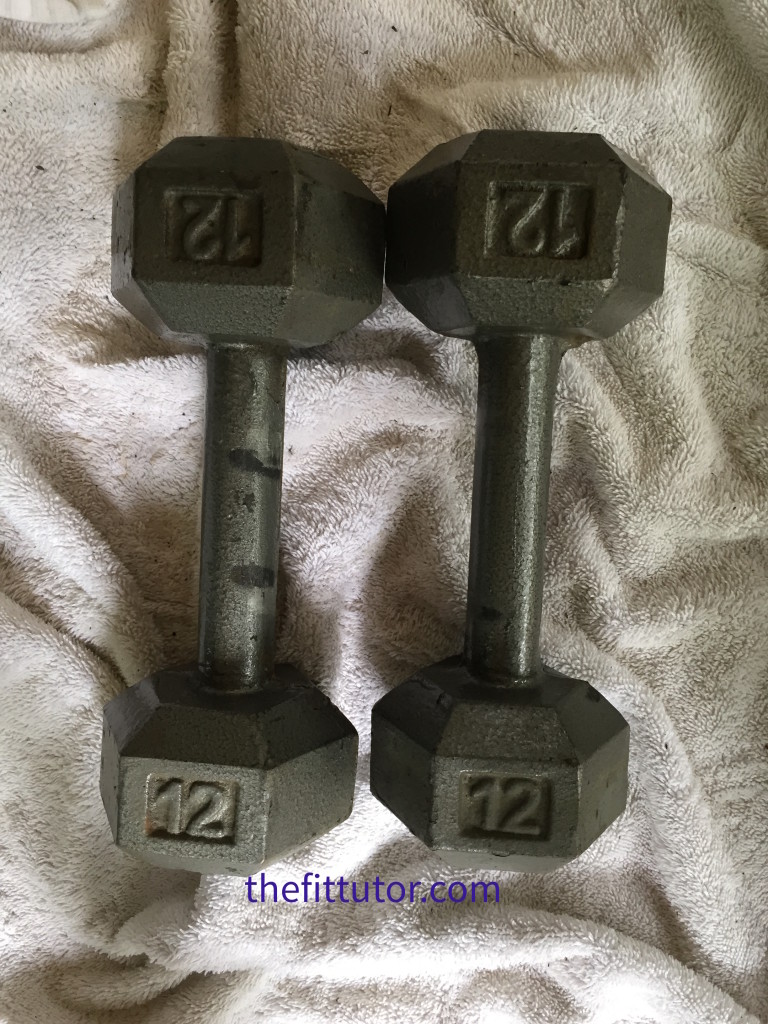
Step 4: Time for some paint.
Paint if needed!
I painted because I wanted pretty weights and to make sure there was never an accidental old weight stain on my clothes or furniture. I bought Rust-Oleum Hammered from Home Depot. You can buy pretty colors, too, if you’re interested. I went with good ol’ silver.
I just used an old blanket and sprayed the weights one side at a time, waited for them to dry, and then continued to the other side. Cover as many times as you think they need. I did two coats because these dumbbells had been left out in the rain before I got them and had a lot of chipped paint.
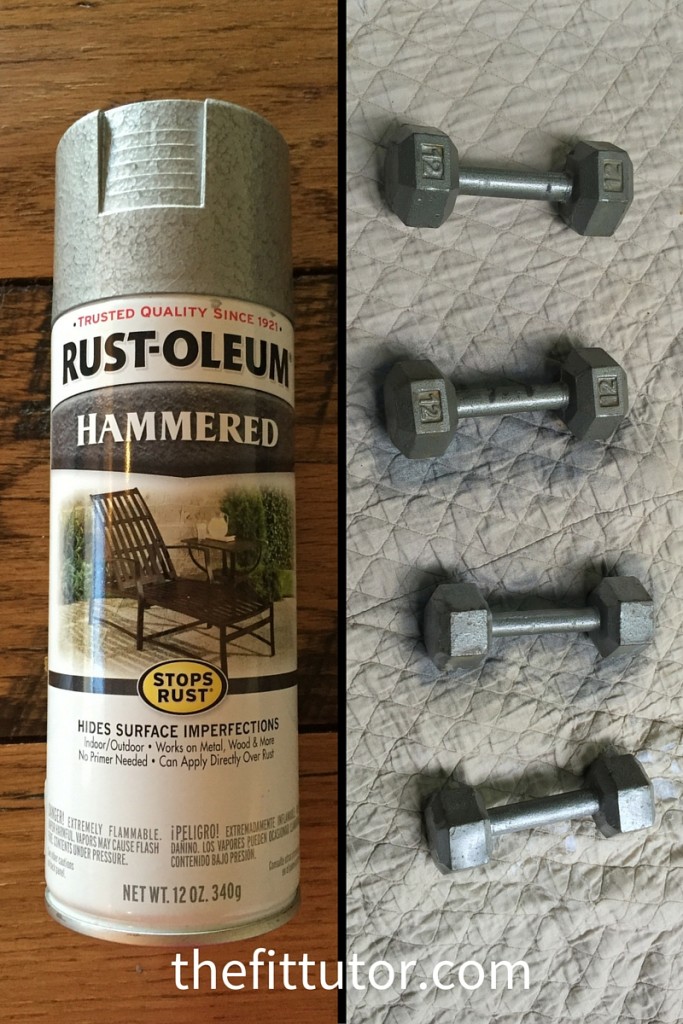
Step 5
WORKOUT.
Use them. Ladies, lifting will not make you bulky, it will help you love your body, feel strong and confident, and help you fight the so-called “inevitable” lowered metabolism as you age.
I am in the best shape of my life by working out at home, using only dumbbells and my own body weight, and following The Fit Tutor’s Nutrition Course. Get your lifetime membership for only $50– especially if you aren’t sure how to most effectively use your new, shiny dumbbells!
I was psyched to buy my first pair of dumbbells and bought brand new, but as I get stronger and need heavier weights to continue to improve my body, I find the cost goes up. Restoring old weights has saved me a lot of money and has helped me get the most out of my workouts! Let me know if you have any questions!
Finally, here’s an after-after photo. I procrastinated on writing this blog and I’ve been using these 12’s now for over 9 months and they still look this good! These in particular have been toted around in my car to clients’ houses and only have a few nicks. I’m pretty happy with how they turned out:
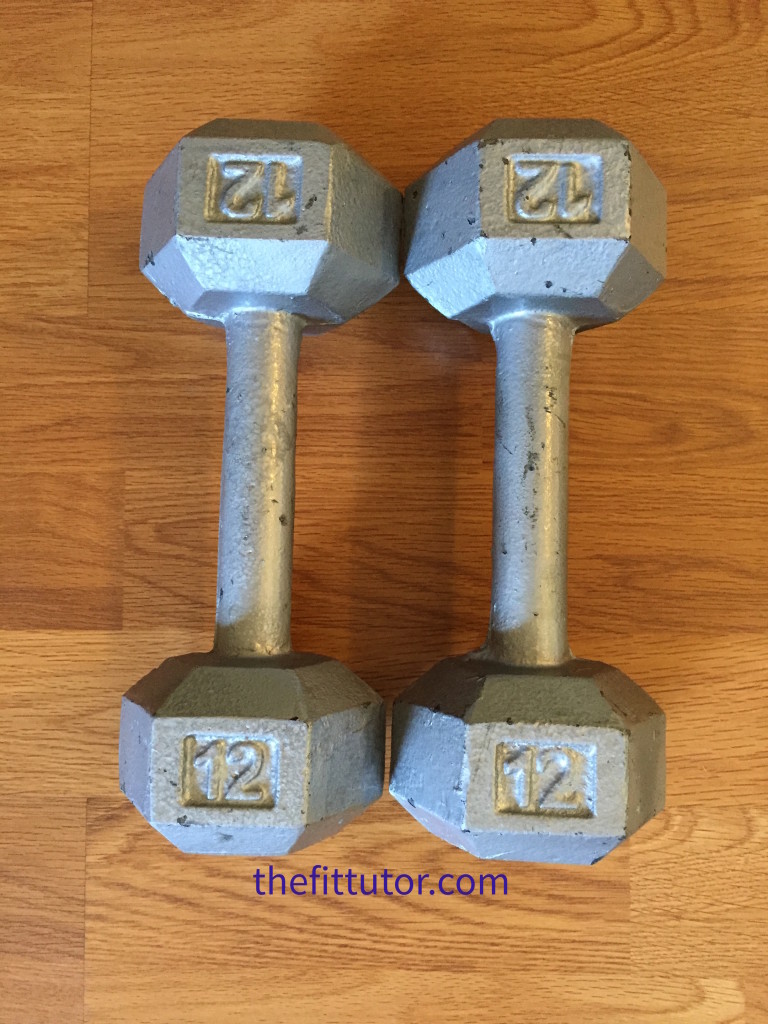
And check out When Should I Increase the Weight I’m Lifting?
Wishing you all the luck!


I have exactly the same 12 dumbell like yours, but why do I feel like my 5+5 kg plates are heavier?
That’s interesting! I wonder if it’s the shape that makes them feel heavier? Not all weights are created equal either, it might be worth stepping on the scale with them!
It’s because the mass is different, mass and weight aren’t the same but they factor each other. The surface area on the plates sag off the side of your hand so you aren’t holding as much of the mass as you would a dumbbell; only the nubs(50% of the dumbell mass) would stick out the side as opposed to holding the edge of a weight plate and having(98% of the mass exposed) so you can’t hold enough of it and gravity would affect it more than the dumbbells.
ahhh that makes sense. Science Guy to the rescue!
No. Just no.
No it’s inertia you fool
To further protect after painting could I apply a coat of polyurethane?
I have the kind with metal handles and some kind of dense rubber for the weights. will vinegar have any affect on the rubber part?